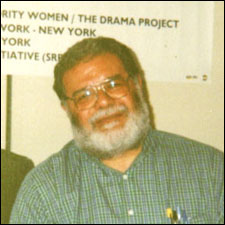Rural Health: People, Food, Communities
|
Rural Health: People, Food, Communities
|
|
||||||||||||||||||||||||
Starry Krueger of RDLN noted the prevalence of health challenges within our rural Network of people in low-income areas with high percentages of people of color. Billie Jean of SWAR-MW, former Chair of RDLN's Board of Directors, stated that 80 counties in Alabama don't have hospitals, many sick people have to go eighty miles to reach a hospital, and people often use an ambulance simply as a means of transportation. When her own father was sick, the closest hospital refused to admit him, and he died the next day. She stated that our health care system will not work until the profit motive is removed.
Sophia Bracy-Harris (right), Alabama Lead for the Southern Rural black Women's Intiative, Executive Director of the Federation of Community Child Care Centers of Alabama (FOCAL), and an RDLN Field Advisor, recalled the change in voting rights that came though Bloody Sunday in Selma in 1965 and stated that people now need to take responsibility to bring about the change that is needed in the health care system today. She stated that health care is a human right and said "We can stand up for a change. We can cause America to change its health care policy."
|
||||||||||||||||||||||||
|
|
|
|
"We are
too poor to be quiet."
-Yvonne Hampton
 John Zippert, RDLN Board Member, covered the meeting for his newspaper The Greene County Democrat. As Board Chair of the Greene County Hospital, he also streesed the need to support local health care institutions. John is Director of Program Operations for the Federation of Southern Cooperatives. |
||
|
|
|
Home | Winter 05-06 | Fall 2005 | Summer 2005 | Fall 2004 | Spring 2003 | Fall 2002 | Spring 2001 |